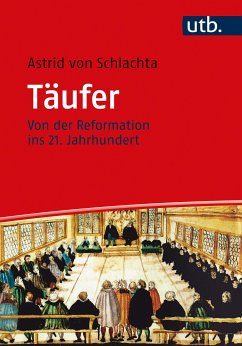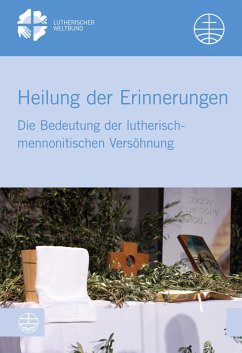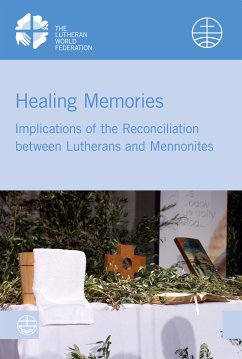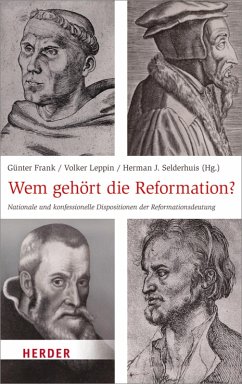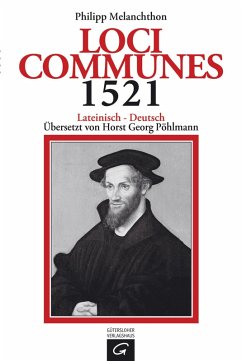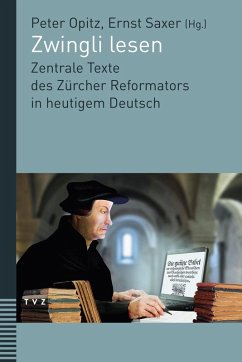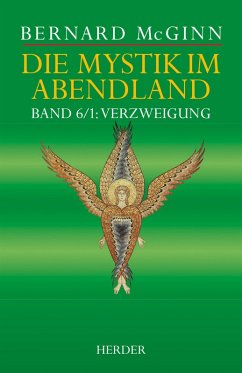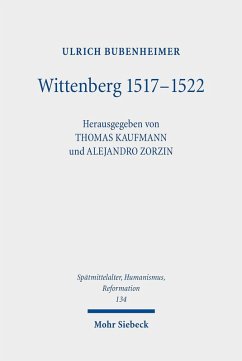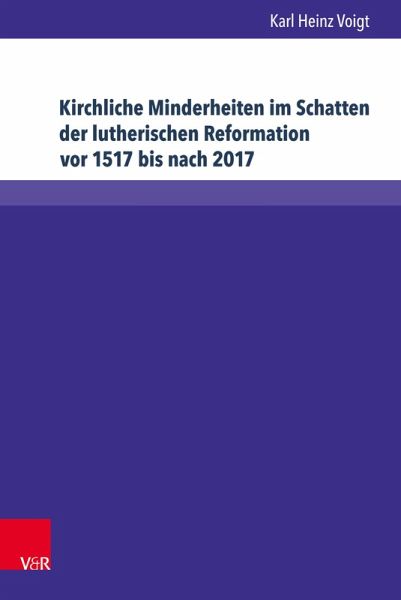
Kirchliche Minderheiten im Schatten der lutherischen Reformation vor 1517 bis nach 2017 (eBook, PDF)
1648: >Kein anderes Bekenntnis soll angenommen oder geduldet werden<
Versandkostenfrei!
Sofort per Download lieferbar
45,00 €
inkl. MwSt.

PAYBACK Punkte
0 °P sammeln!
In den deutschen Kleinstaaten hatten bis 1918/19 neben der lutherischen und der reformierten Tradition keine weiteren protestantischen Konfessionen und Denominationen verfassungsmäßig gesicherte Rechte. Der Autor thematisiert zwischenkirchliche Erfahrungen der nicht geduldeten Kirchen im Verlauf der Geschichte. Beide Staatskirchentraditionen standen unter weitreichenden Einflüssen der politischen Herrscher. Die in Deutschland bis 1919 fehlende verfassungsrechtlich gesicherte Religionsfreiheit gab den privilegierten Landeskirchen monopolartige Vorrechte, die sie auch vor vorreformatorischen ...
In den deutschen Kleinstaaten hatten bis 1918/19 neben der lutherischen und der reformierten Tradition keine weiteren protestantischen Konfessionen und Denominationen verfassungsmäßig gesicherte Rechte. Der Autor thematisiert zwischenkirchliche Erfahrungen der nicht geduldeten Kirchen im Verlauf der Geschichte. Beide Staatskirchentraditionen standen unter weitreichenden Einflüssen der politischen Herrscher. Die in Deutschland bis 1919 fehlende verfassungsrechtlich gesicherte Religionsfreiheit gab den privilegierten Landeskirchen monopolartige Vorrechte, die sie auch vor vorreformatorischen Bewegungen (Waldenser und Böhmische Brüder) und vor später kommenden Minderheitskirchen (Baptisten, Methodisten u. a.) schützten. Langfristig führte das zu einem einseitigen Verständnis von Kirche und wegen nationaler Verbundenheit anfänglich zu ökumenischer Zurückhaltung. Until 1918/19, aside from Lutheran and Reformed traditions, no other Protestant confessions or denominations had constitutionally secured rights in the German small states. The author discusses inter-church experiences of churches that were not tolerated throughout history. Both state church traditions found themselves under the far-reaching influences of the political rulers. The lack of religious freedom secured under constitutional law in Germany until 1919 afforded to privileged state churches monopolistic preferential rights that also protected them from pre-reformation movements (such as the Waldenses and the Bohemian Brethren) and from later-appearing minority churches (such as Baptists and Methodists, among others). In the long term, this led to a one-sided understanding of church and initially to ecumenical restraint by virtue of some national affiliation.
Dieser Download kann aus rechtlichen Gründen nur mit Rechnungsadresse in A, B, BG, CY, CZ, D, DK, EW, E, FIN, F, GR, H, IRL, I, LT, L, LR, M, NL, PL, P, R, S, SLO, SK ausgeliefert werden.





